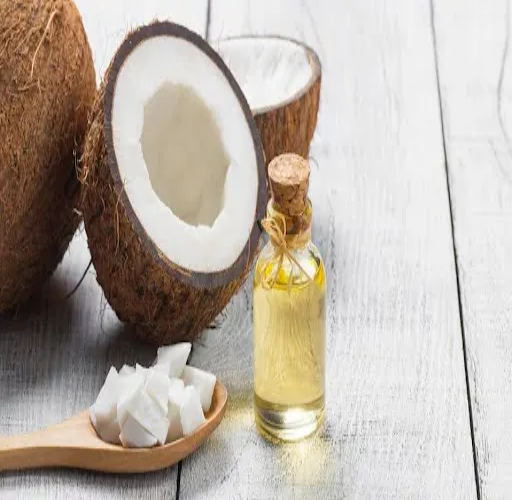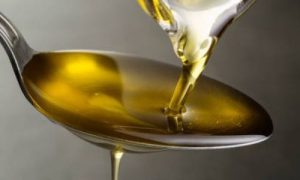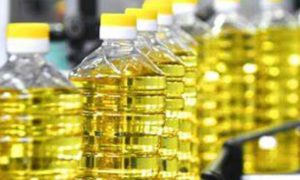Oil Pulling: How It Works, Benefits And Risks

Oil pulling originated from Ayurveda, a traditional, holistic Indian medical system, thousands of years ago. While oil pulling is typically associated with dental health, Ayurvedic texts claim over 30 systemic diseases may benefit from the oral cleansing method, though more research is necessary to confirm these claims.
Research suggests oil pulling may provide some health benefits, though the extent of these benefits require additional clinical studies. Read on to learn more about oil pulling, including its potential benefits and risks, types of oils to use and how to do it.
What Is Oil Pulling and How Does it Work?
Oil pulling is an ancient dental hygiene practice with roots in traditional Indian medicine and Ayurveda. The practice involves swishing an edible oil, such as sesame or coconut oil, in the mouth for a set amount of time before spitting it out.
Oil pulling can have a positive effect on over 30 health concerns, including migraines, asthma and diabetes. Meanwhile, most studies about oil pulling focus on how the practice may improve dental and oral health.
Research into the mechanisms of oil pulling is limited, however some studies suggest it reduces the amount of harmful bacteria in the mouth. This reduction in microbes may occur because the oils used in the practice, particularly coconut oil, saponify (become soaplike) when swished in the mouth with saliva.
Meanwhile, another theory suggests the thick consistency of the oils used in oil pulling may inhibit bacteria from accumulating on the teeth, helping to prevent plaque buildup, which is a factor in gingivitis and other periodontal diseases. Additional research is needed to fully understand and verify how oil pulling works to benefit oral health.
What Are the Best Oils for Oil Pulling?
“The best oils for oil pulling are coconut and sesame oil,” says Vaidhya Reeta Rudra, a New York-based board-certified alternative medical practitioner with approximately 20 years of experience practicing Ayurveda. “The oil should be organic and cold-pressed,” she adds. Cold-pressed oils are extracted from nuts and seeds through a manual pressing technique rather than by using solvents. Research indicates cold-pressed oils retain many beneficial bioactive components, such as antioxidants and essential fatty acids like omega-3s.
Clinical studies explore the use of coconut oil and sesame oil and a 2017 analysis in the International Review of Health Sciences suggests sesame oil may benefit oral health due to its antioxidant qualities that can help reduce tissue damage. Alternatively, coconut oil may offer benefits thanks to its potential antimicrobial properties[1].
Oil Pulling Benefits
Limited clinical research indicates oil pulling may reduce the amount of bacteria in the mouth, says Teresa Yang, D.D.S., a California-based dentist and author of Nothing but the Tooth: An Insider’s Guide to Dental Health. This reduction in bacteria may improve oral health overall, she adds.
“Oil pulling is helpful for healthy gums, and it improves the taste buds and salivation,” says Rudra, adding that the practice may benefit the entire digestive tract as well.
Some small studies and reviews exploring the role oil pulling may play in dental and systemic health suggest a range of proposed benefits. The antimicrobial and antioxidant properties of certain oils used in oil pulling may contribute to some of these health benefits, such as below.
May Reduce Bad Breath
Halitosis, or bad breath, can be a result of the presence of a specific bacteria that produces sulfur in the mouth, as well as infections related to periodontal diseases. With potential antibacterial properties, the oils used in oil pulling may help prevent bad breath.
In a small study, oil pulling proved to be as effective in reducing bad breath among participants as chlorhexidine, a common mouthwash ingredient that reduces bacteria in the mouth,, according to a 2017 review in the Journal of Complementary Medicine[2].
May Improve Gingivitis and Gum Health
Some studies indicate oil pulling may have a positive effect on gingivitis, a periodontal disease that can lead to infection and inflammation in the gums. According to a 2022 review and meta-analysis in Healthcare, some evidence shows oil pulling can reduce the types of bacteria that cause gingivitis and gum inflammation, as well as the total amount of bacteria in the mouth, though the authors note further research is needed[3].
An Affordable Alternative to Mouthwash
Compared to mouthwashes, some oils recommended in oil pulling are both inexpensive and widely available, and some studies conclude oil pulling is as effective as mouthwash when it comes to reducing bacteria in the mouth, making it a viable alternative to mouthwash, according to Dr. Yang. However, individuals shouldn’t replace teeth brushing with oil pulling, but rather consider it a complementary oral hygiene routine, she adds.
May Improve Digestion
“The process of digestion starts from the mouth,” says Rudra, adding that improving oral health can improve digestion. “[Oil pulling] is very helpful for strong gums and good salivation. It also helps increase good bacteria and decrease harmful [bacteria],” she adds.
Studies confirm the connection between oral health and digestive health, though how one system affects the other is still being determined by experts. According to a 2020 review in the Journal of Dental Research, when microbes in the mouth and oral cavity are transferred to the gut, certain digestive conditions, such as irritable bowel syndrome and inflammatory bowel disease, may worsen[4].
Although research shows oil pulling is effective in decreasing bacteria in the mouth, no studies confirm that the practice can positively affect or improve digestion.
Oil Pulling Risks
If an individual is interested in oil pulling, they should first speak with their health care provider, as few studies explore the potential risks of oil pulling. While reported risks associated with oil pulling are rare, swallowing the oil used in oil pulling can lead to some unwanted side effects.
The primary risk associated with oil pulling is aspirating (inhaling) the oil into the lungs. Doing so may lead to lipoid pneumonia, a type of pneumonia caused by oil entering the lungs.
Swallowing the oil can also lead to digestive upset, says Rudra.
Furthermore, most research assumes oil pulling is a complementary practice to traditional oral hygiene, such as teeth brushing, flossing and regularly visiting a dentist. Oil pulling shouldn’t replace existing provider-recommended dental care.
How to Practice Oil Pulling
Rudra advises practicing oil pulling early in the morning on an empty stomach, either daily or at least two times a week. To perform oil pulling correctly, swish and swirl 1 tablespoon of oil continuously for 10 to 12 minutes before spitting it out, she says. The oil should become thinner and develop a milky white color during the oil pulling process, says Dr. Yang, who recommends not spitting the oil into a sink, as similarly to other types of cooking oil it may clog the pipes. Instead, one could spit the oil into the toilet.
The “swish and swirl” method is the most common oil pulling method and can be helpful for cleaning the oral cavity, explains Rudra. Another Ayurvedic approach to oil pulling involves holding at least 2 tablespoons of oil in one’s mouth for as long as possible (without swishing) before spitting it out. This approach may be more beneficial for the gums and mucus lining of the mouth, she adds.
Rudra advises gargling warm water if the taste of oil lingers in one’s mouth after completing the routine.
Source Link: https://www.forbes.com/health/dental/oil-pulling/















